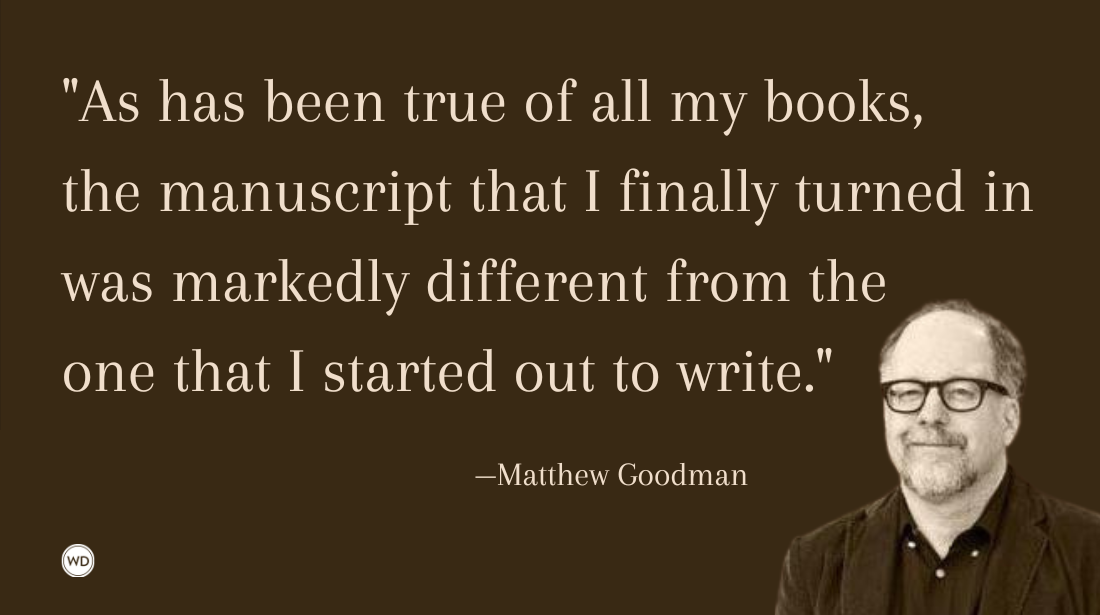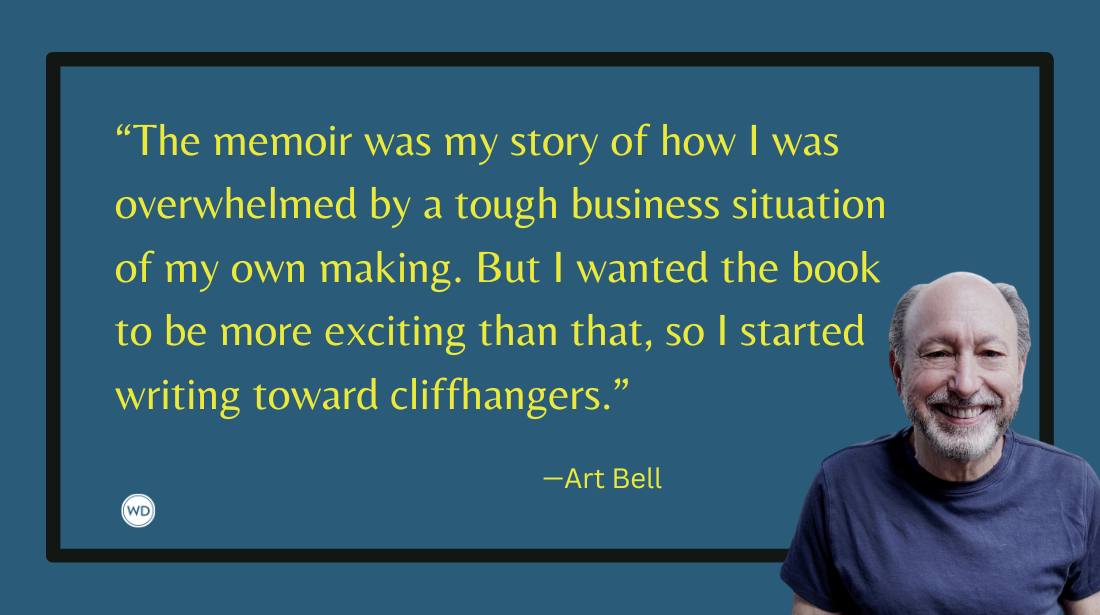Tips for Powerful, Understated Writing
In our era of exclamation points, sometimes nothing works better than a whisper.
We live in an era of exclamation points. You know what I mean. From political campaigns to new-product introductions, hype is king. Television talk-show guests distinguish themselves by throwing chairs and/or punches. Every new film is "The biggest movie of the year!!!," competing with other mega-flicks to see which can bulge with the most gore, the eye-poppingest computerized special effects and the leapingest lizards.
In an era of extremes, is there any room for understatement?
In the realm of nonfiction, I'd like to argue that the answer is an understated "yes."
Indeed, it's precisely when writing about subjects that seem extreme that understatement can be most effective. If your subject is grand or overwrought or hyperbolic, if it comes already laden with innate drama (real or manufactured), you might find that speaking softly works better than a big stick.
Understatement can also sharpen your writing by forcing you to observe, to build your articles with details and specifics rather than empty modifiers and hype. Instead of parroting others' exclamation points, you recreate the scene with commas and periods?then let your readers decide what's extraordinary.
Hit the Beach (Softly)
The power of understatement struck me during the recent revival of interest in the D-Day invasion, sparked by the (justifiable) excitement over the movie Saving Private Ryan. If any 20th-century event merited exclamation points, it's surely D-Day. Thousands perished, valor mixed with horror, and history turned on the outcome.
Yet the great war correspondent Ernie Pyle began his dispatch from D-Day by describing a walk along the beach. Here's the lead from Pyle's June 16, 1944 column:
I took a walk along the historic coast of Normandy in the country of France.
It was a lovely day for strolling along the seashore. Men were sleeping on the sand, some of them sleeping forever. Men were floating in the water, but they didn't know they were in the water, for they were dead.
Understated? Certainly. Powerful? Even 50 years later.
Pyle could have opened with a burst of exclamation-point prose?no question that his subject warranted it. He could have screamed about the casualties and the massive invasion fleet. He could have doled out comparisons to the Norman Conquest or piled adjective upon adverb. But instead he took his readers for a walk along the beach.
What gave Pyle's understated writing its power, in part, was his keen observation, presented without adornment: "Men were sleeping on the sand.... Men were floating in the water...." These are the facts. This is what he saw. This is what he saw next:
The water was full of squishy little jellyfish about the size of your hand. Millions of them. In the center each of them had a green design exactly like a four-leaf clover. The good-luck emblem. Sure. Hell, yes.
Seven well-chosen words tease the irony from Pyle's meticulous observation: "The good-luck emblem. Sure. Hell, yes." A lesser writer might have given in to overwriting, banging home the obvious rather than letting the readers fill in the lines themselves:
... Four-leaf clovers are supposed to be good-luck charms, but for the doughboys who perished on this blood-soaked beach of indescribable mayhem, D-Day was anything but lucky.
Is Pyle's detailed, understated account more effective and powerful? Hell, yes.
Legends in Their Own Mind
Sometimes your subject is extreme, but in a hyperbolic way?not D-Day, say, but Don King. The boxing promoter was the subject of a 1991 Esquire magazine profile by sportswriter Mike Lupica, who must have been tempted to match his subject exclamation point for point. That might have worked, too, in a sort of form-follows-function way. But it might have been like making coffee with caffeinated water.
Instead, Lupica, like Pyle, began with a deceptively peaceful scene:
The brownstone on the upper east side of Manhattan is quiet for now, quiet the way a subway platform is before the train comes. You know the D is on the way, you can even feel the ground shake a bit, see some light way back in the tunnel. But the train hasn't arrived yet. Don King has just left his office in another part of Manhattan.
Timing?much the way a standup comic times his delivery?made that opening click. The rhythm of the sentences suggested a train chugging to life: long... long separated by commas, building momentum... short... then the punch line. And Lupica never needed to explicitly say, "Don King is like a human train." He set up the train imagery, then flatly segued to his real subject: "Don King has just left his office in another part of Manhattan."
As his article unfolded, Lupica relied on his ear for vivid quotes. Lupica didn't need to say that Don King is bombastic, egotistical, passionate, perhaps paranoid. Instead he let Don King say it, by stepping back and quoting King at length.
Long, uninterrupted direct quotations can slow your writing and burden your readers. Few subjects, after all, are "quotable" for whole paragraphs at a time, and most benefit from interspersing their words with paraphrase and summation. But when you do get that rare interviewee whose every sentence seems worth writing down, step out of the way and let him talk. (King, Lupica interjected after three paragraphs of quotation, "is the first rap opera.") Use your ears and let your subject supply his own exclamation points.
Steps to Understatement
Here are three tips to help you get started writing more "quietly" but effectively:
1. Minimize your modifiers. Adverbs are the agents of hyperbole: Patrol your prose for empty, tacked-on words such as very, extremely, importantly, hopefully, frankly, uniquely, unusually. Then root out the generic adjectives that are their kin: important, unique, unusual, special, greatest, innovative and so on. Don't tell your readers that your subject is the greatest, most important, most unique of its kind; show them.
2. Dwell on the details. A key to showing instead of telling is delivering information at the "micro," not "macro" level. Walking along Normandy beach, Pyle spotted not only those symbolic jellyfish but also "vicious six-pronged iron snares," wrecked vehicles spilling out "their useless equipage of smashed typewriters, telephones, office files," and, floating in the water, "empty life rafts and soldiers' packs and rations boxes, and mysterious oranges." Go close up, zoom in so you notice the jellyfish and the oranges; then let your readers see them, too.
3. Don't start with a bang. If your subject is big and dramatic enough your lead doesn't have to scream. The understated approach sucks the readers in, even lulls them, then grabs on tight. Pick something small, symbolic, evocative, and open with that. Then use that subtle element like a prism to show your readers the whole rainbow of your subject.
Even in an era of exclamation points and shouting, you can make yourself heard by whispering?if you're whispering the right words.








